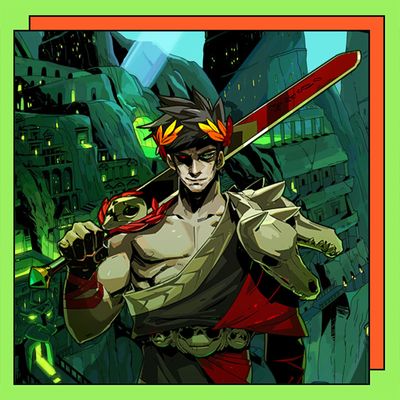
As I lost my grip on reality over the past year, I found comfort in virtual ones. For the first time since my teens, I was playing Nintendo. Initially it was Breath of the Wild, the giant open-world Zelda game, which offered a fantastic opportunity to do things I could not do in real life, like travel, buy a house, or save the world from a primordial manifestation of evil. As the pandemic dragged on, I turned to Hades, a video game in which you play as Zagreus, the son of Hades, attempting to escape the Underworld. The structure is straightforward: There’s a beginning and an alleged end when you reach the surface. It’s fast and difficult, and I was terrible at it. I texted my friends beseeching them for their help: Help! They lobbed benign platitudes like “Keep trying!” and “It gets better!” I died and died and died in both new and familiar ways in a Groundhog Day reprise. I learned to take pleasure in the repetition. Hades offered a different form of solace. It was affirmation, not wish fulfillment: We were in hell, and there was no escape.
Hades is a “roguelike,” a video-game subgenre whose main features include a randomized dungeon crawl, high difficulty level, and permadeath, meaning that when your character dies, you have to start all over again. Gaming scholars will point out that technically Hades is a “rogue-lite” in that while it shares many of these qualities — you move through ever-shifting chambers of hell — when you die, you don’t start from scratch. Yes, you return to the starting line, but a narrative arc also forms. Other characters acknowledge that you suck at staying alive; you accumulate experience (as well as something called “darkness”). Like Tom Cruise waking up the day before battle in Edge of Tomorrow, you emerge from the River Styx, shake the blood out of your hair, ready for another round. “Failing is an important part of the pleasure of the game,” says Amir Rao, the studio director of Supergiant, the independent game developer behind Hades. “This is how you get through this game,” adds Greg Kasavin, the creative director. “You didn’t screw up, you didn’t do something bad.”
Indeed, it does get better. I refused to put on “God Mode” to make the game easier on myself, because purism is another form of masochism. Still, as Zagreus gets stronger, so do you. I learned not to stand in lava, for instance. “You carry forward your knowledge,” says Kasavin. “We wondered if we could build that into the premise — have it be about a character who also carries forward his knowledge and encounters other characters who also remember everything that happened. So it becomes a fun thought exercise: How do we align the narrative experience with the actual experience the player is having?” There’s a metaphysical point here that’s inherent to even the most rudimentary games, whether it’s a Rubik’s Cube or Red Dead Redemption: You die, you learn. You are no longer the same person when you try again.
Of course, what an endless loop of death begins to resemble is life itself. The structure of the game remains the same and yet your motivations for playing begin to change. The first time I got out of hell (the final boss is, quite fittingly, your father Hades), I felt relief, joy, fulfillment. Then the story opened up more. When Zagreus reaches the mortal coil, he meets his birth mother Persephone, who believed him to be stillborn. You reunite only to discover that you can’t survive for long in the surface world. You die, again. The brief encounter is just another opportunity to do the whole thing all over again in order to talk to your mother. Endings, rather elegantly, simply become new beginnings.
Eventually, Hades starts to feel more like a family drama in which the goal is to patch up relationships: Zeus and the rest of the Olympian clan are petty and capricious with their boons; your father is an overbearing bureaucrat drowning in paperwork. The game has the aesthetic and charm of a sardonic graphic novel. You meet other characters along your journeys through the planes of death and can choose to help them. In a kind of interactive slash fiction, I became heavily invested in reuniting Achilles with long-lost lover Patroclus as well as courting Thanatos, thirst trap of death, with bottles of ambrosia.
Hades has multiple endings but, also, none at all. You can continue to play the game long after you trigger the credits sequence as well as an epilogue. There’s an endless number of things to do: the minutiae of everyday life. “It’s a paradox, right? How do you end something that can keep going forever?” says Kasavin. The real mythological forebear of Hades is not any of the Greek gods but really Sisyphus and his boulder. He too appears in Hades, reimagined as someone whose endless toil has made him cheerful, reflective, and possibly a bit mad. The task of pushing up the boulder has not changed, but he seems to enjoy it. Drudgery is daily practice. It’s a bit of straightforward optimism I’ve held onto during the pandemic, a hope that I may emerge from quarantine better than when I entered it.
More From This Series
- No, They Weren’t Dead the Whole Time
- Harrison Ford Didn’t Do It
- What Makes Viewers ‘Tune In Next Week"?


